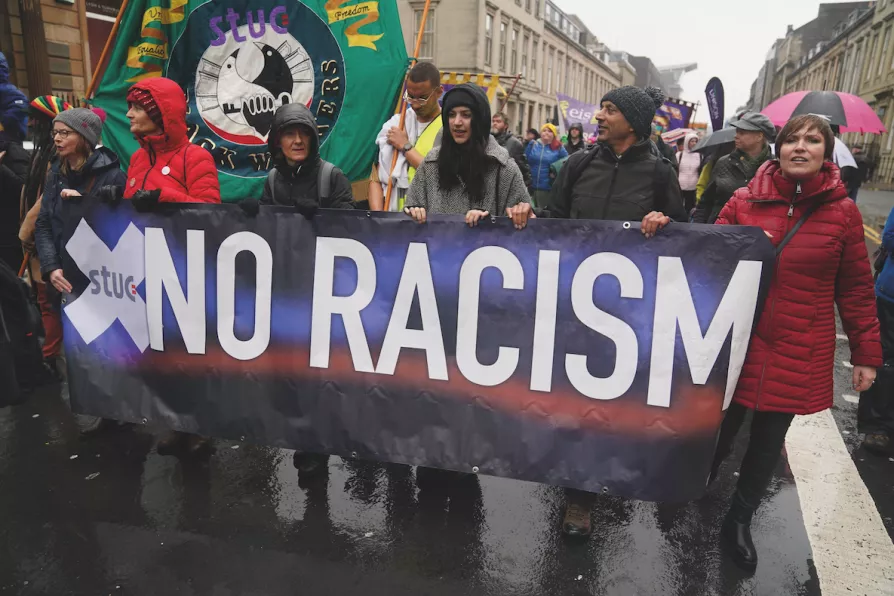RAMZY BAROUD sees Gaza abandoned while the genocide continues

 RESISTANCE: An anti-racism and anti-fascist march in Glasgow, organised by the Scottish Trade Unions Congress last year
RESISTANCE: An anti-racism and anti-fascist march in Glasgow, organised by the Scottish Trade Unions Congress last year
THE Communist Party of Britain (CPB) has always been at the forefront of campaigns against racism and fascism. We recognise, however, that situations and organisations of workers change; this must be reflected upon.
The CPB congress in November will see several major debates, including on racism and fascism.
The “stop the boats” campaign by the Conservative government and large sections of the mass media against asylum-seekers and other immigrants can only raise tensions and threaten race relations as millions of people confront rising bills, poverty, unemployment, poor housing and deteriorating services.

Listening to our own communities and organising within them holds the key to stopping the advance of Reform UK and other far-right initiatives, posits TONY CONWAY

TONY CONWAY assesses the lessons of the 1930s and looks at what is similar, and what is different, about the rise of the far right today












